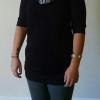Search the Community
Showing results for 'reactive hypo'.
Found 1,426 results
-
Hmmm, changes within the inner ear would account for the dizziness, but not for the darkening of vision while standing. That is almost always related to blood pressure. Either hypo or hypertension can cause vision issues like the ones described.
-


Dumping Syndrome....... Advice?
moonlitestarbrite replied to dv1osusie!'s topic in Gastric Sleeve Surgery Forums
this isnt dumping, its reactive hypoglycemia. you need to go see your nut to reevaluate your eating plan. -
Here are a couple sites so you can look at it yourself..K http://www.healthlinkbc.ca/healthyeating/reactive-hypoglycemia.html http://chealth.canoe.ca/condition_info_details.asp?disease_id=73
-
I can't comment after surgery but I can after weight loss (which obviously I regained). I reached a weight I was happy at, not in the healthy weight range for BMI, but I was curvy and fitted a size 12 (Australian). Losing the weight gave me the confidence to put myself back out there, as it were. I put a profile on a dating site, had some contacts, didn't meet too many, but there was one who I was quite taken with...we were together for about nine years. That relationship finished up March last year. With the weight loss and improved self confidence, I was happy to wear fitted clothes in lovely colours not the baggy shapeless clothes in dark or dreary I tended to wear. I know there are plenty of people with the confidence to put themselves out there regardless of what they weigh, not me, I practically become a recluse. For the period of time I kept most of the weight off I was quite confident and social. I wish I had that confidence, that self believe in myself regardless of what a number on the scales say. I think confidence is an attractive trait and people respond to it in a positive way. With confidence we stand tall, we smile at strangers, most strangers (including service staff such as shop workers) reactive positively to people who smile, who don't slouch etc. And to be fair to the opposite sex, there are plenty of men who love a confident (or not) woman regardless of what she weighs. Sorry for waffle!
-


Just posing a question, not looking for an argument
CowgirlJane replied to laguerr13's topic in POST-Operation Weight Loss Surgery Q&A
I don't mean to be a nitpicker, but I want to be sure that newbies researching get accurate information. When I was researching the sleeve in 2011 it was clear even then that there are some long term complications associated with the sleeve. #1 is reflux/GERD. in fact, it seems to peak about 3-6 years post op - I recall reading that about 30% are impacted. Most people can manage it well though... a few have to revise to bypass because it is so bad. I had to ask myself if I was willing to risk this. #2 regain. This is a risk of all WLS and the sleeve has very comparable stats to the bypass, but it is still a long term "risk" #3 Less common, but real problems like: ulcers and other "problems of the stomach". This seems fairly uncommon, but there is a person on this forum who developed a "leak" a year or more post op from an ulcer. Reactive hypoglycemia, vit B deficiencies and other very uncommon type problems can show up. I don't say any of that to scare people - just go in with your eyes open. I, like most sleevers, have no complications and am very happy with my choice, but there are long term concerns to be aware. -
I am 5 months post op sleeve and 2 weeks post op Gall bladder removal. Just wondering if anyone who had wls and Gall bladder surgery takes any enzymes or made any major changes to diet due to not having a gall bladder anymore. I like to be more proactive than reactive.
-


I'm lost! Journal not working?
kutia replied to LittleBird's topic in Website Assistance & Suggestions
When I click on Journal Index, it says module deactivated. I really hope it is eventually REactivated. :nervous -
Post op 3 days. Need to loose 40 pounds very realistic since i am. 57. And have hypothyroid.
-


Gastric Sleeve Accomplished Surgery! On my way!
TheDivineMissK posted a topic in Tell Your Weight Loss Surgery Story
Well, Here I am! New to all of this and hoping I can meet new friends and different opinions on this whole new life! My life changes started when I learned that I had developed Diabetes, along with already having High blood Pressure and hypo thyroid. Along with my mother getting sick and having to go to the hospital and when I rode in the ambulance with her, I couldnt even buckle the seat belt! I was soooo embarrased! I made an appointment with Dr. Shroder and went in January of 2013. As required, I had to get a nutrionionist consult, a psychaitric evaluation, and letter of support from my Family Practice Doctor. I completed all of this by the end of April this year. All information was submitted to my insurance company, and within several weeks I was approved for surgery! No problems! The insurance company covered it 100% other than the 250$ a night I had to pay out of pocket. My surgery was scheduled for August 12, and was I excited! I had preop work done the end of July. Surgery date came and I was at the hospital by 7am. Of course I had bad veins and it took a few sticks, but finally got the IV started. I was wheeled into the OR at 9am. By 1pm I was out of surgery and back to my room. I do remember being in some pain in Recovery room, but hey, they were well equipped with drugs to keep me happy. I never had any extensive pain while I was in, just being a little uncomfortable. My doctor has his patients in the step down unit to ICU, so there for I was under constant nursing supervision the whole time. I had the BEST care at my hospital and dont regret a thing. I stayed a total of 2 days, and then went home with my JP drain. Yes, not too pretty, but hey, it was only in for a week. Totally painless to remove. I have 4 incision sites, that are just a light red now, 2 months post surgery! So, Please, take this step for surgery if you are considering it! Totally worth it! -


sugar too low post op
Butterflywarrior replied to fd319's topic in POST-Operation Weight Loss Surgery Q&A
I'm diabetic already and it's drastically improved sine surgery two weeks ago... Lows are common but some ppl do develop hypoglycemia after sleeve as a complication Definitely talk to your NUT about it but eating a few light carbs can help or slow burning carbs like Beans and peas etc. I'm using Melba toast or wasa crackers with My tuna and hummus, fills me up, keeps me satisfied and not feeling so dizzy and hypo like I was when I was doing Protein only. Definitely check your blood sugar especially if you feel symptoms and if you're scared of oh they have these not so great tasting glucose tablet chewables you can buy at the drug store for a few bucks in different flavors and they boost your glucose up quickly -
I am kind of confused as to why you would tell people your weightloss was due to being "diagnosed" wth hypothyroidism? I have hypothyroidism and that is exactly why I chose to get this surgery. Neither hypo or hyperthyroidism make you lose weight, and not drastically; I have been treated for both for over six years now. I just found that interesting that you would say that since the disease makes you do the exact opposite.
-
I have BCBS of Minnesota. So u did use the on-line tools or not? If u reactivate your account then you can Access your past weights, but it costs to do that. I just called the 1-800 number and asked. I had gained about 50pounds since the last time I used weight watchers, but it still proved my fatness. lol Good luck!!!
-
Does having no thyroid at all = hypo? I've wondered about that. I'm losing pretty well so far on pre-op diet. 9lbs in 10 days. But thats on all liquids except a lean dinner. 9lbs is a big deal since it would normally take a year to lose 5 just to gain back 15. The struggle is real with no metabolism. I gained 70 my first year after having it removed. I'd give anything if modern medicine would figure out how to do a transplant.
-
This is going to be long, so I apologize. I'm just frustrated. I'm almost 2 years post VSG and have developed a significant case of GERD. It's so severe, and not controlled by medication, that my surgeon feels we can't just let it go. He has recommended that I undergo a procedure called stretta, which seems promising. We submitted for approval to my insurance company which promptly rejected the request (took them all of 3 business days) on the grounds that the procedure is experimental and there are well accepted alternatives, including pharmaceutical therapy and Nissen Fundoplication. Well, I'm not controlled by medication and the only combination that provides any relief Protonix/Dexilant was already rejected by the Company (they won't pay for the Dexilant and at almost $400 a month, the cost is almost prohibitive). Also, given that I no longer have a fundus, a fundoplication isn't available to me (nice going insurance co . . . way to review my medical records). My final option is conversion to bypass, which I really don't want to do. Other than my GERD, I LOVE my sleeve. It's allowed me to lose 130lbs and live an active lifestyle I've only dreamed about. I like having my pyloric valve and not having to worry about dumping, reactive hypoglycemia, etc. Also, the thought of another major surgery is not thrilling me. Anyway, my surgeon gave me the cost for both Stretta ($5,000) and conversion ($100,000). We decided to seek approval for conversion just to have it in our back pocket while we appeal the denial to my state Department of Insurance. Wouldn't you know it, they approved the $100,000 surgery. This is a prime example of what's wrong with the insurance industry. Why would you approve a $100,000 solution to a $5,000 problem???? Just frustrated beyond belief and knew this was a good place to get out my aggression . . . here and in my kickboxing class where I visualize the Ins. co's medical director's face as my target!
-


Insurance approval-Stressed out!!!
Rocky_Mountain_Mama replied to cwhisnant's topic in Gastric Bypass Surgery Forums
I am an employee benefits professional and if you elect COBRA you should be fine. The employer is required by law to treat COBRA participants exactly as they do actively employed participants. You might have some hiccups from it going from active to COBRA coverage, just in terms of one ending and one starting, depending on how quickly you elect the coverage and make your payment. That is easily sorted out once they receive your COBRA Payment and reactivate your coverage. I am SO SORRY that your husband lost his job. That just makes it all so much more stressful. -


Preparing for Family this Holiday Season!
Louisa Latela posted a topic in Weight Loss Surgery Magazine
With the holiday season in full swing you may find yourself in the company of people who you avoid most of the year, people who "push your buttons:" who can trigger you to be reactive or defensive. People who USED to trigger you to overeat. A few things you can do to prepare for this: 1. Have realistic expectations. Don't expect them to all of a sudden be different this year. 2. Don't take their words or actions personally. (Whatever anyone says or does is a reflection of what's going on for them; it has nothing to do with you. Think about it: if someone feels good about themselves they see good in others, if someone does't feel good about themselves they won't see good in others; they will be angry, jealous, judgmental, etc.) 3. Set an intention to enjoy the holiday. Wear a bracelet or carry something in your pocket that every time you see or touch it you remember to LOOK FOR THE JOY in this moment. 4. Every time you think of the person/people who you dread seeing say a prayer for and send light and love to them, envision them happy and healthy. 5. And if someone says something that makes you nervous or upset remember the 4 R's of Responsible Respectful Responding: 1. RECENTER: Take a deep breath. If you are anxious or upset you are not centered and your breathing is shallow. Taking a couple deep breaths will help you get out of your head and back into your body; to your Center wherein lies your power (when you are not centered you lose your personal power) . 2. REFOCUS: Remind yourself of your intentions for your life and Focus on how you can handle this situation (in a kind and respectful manner) that will support those intentions. 3. RELAX: Once you are Centered and Focused you can then Relax: do a quick body scan and release any tension you might still be holding. 4.RESPOND: Now instead of impulsively reacting (from a state of fear or anxiety) you can Responsibly and Respectfully Respond to the situation with Clarity, Calm, Compassion, and Confidence! Affirmation: Recenter, Refocus, Relax, and Respond: That's how I roll! Happy Thanksgiving!! Live in Love, Louisa -


When do you delete your online dating profile?
gowalking replied to SleeveSoon's topic in The Lounge
Apologizing in advance for the length of this post but here goes my 'deleting my online profile' story: So...I met a guy on Zoosk in the spring of 2015. No attraction on my part, and every time we went out, I said to myself that I would end it. Problem was...I really enjoyed spending time with him. Eventually we did become a couple and I hid my profile rather than delete it. Glad I did because after nine months of dating, he blindsided me and dumped me. We were not in love and I'm fairly certain in time, the relationship would have limped along till one of us made the move to end it. But because I wasn't prepared, it hit me like a ton of bricks and brought up all kinds of rejection issues for me and well.....you ladies know how this part goes...what did I do wrong?, why was I not good enough?, yada yada yada. What I did know when the relationship was over, was that I wanted to be with someone so crying hysterically, I resubscribed back onto Zoosk and JDate, which I had also shut down but not deleted my profile from. To my complete surprise, I met a man on JDate in June and we have been having a great time together. This relationship is nothing like with the other guy. This new one and I have so much in common and we enjoy talking about all kinds of things and doing so many of the same things. I wrote on another thread that he might be the lid to my pot and so far, it's going gangbusters. I know he deleted his profile from both Match and JDate a few weeks ago and knew that I had not. It wasn't that I was dating anyone else...I just wasn't ready to shut it down again. Last night I went onto Zoosk because I was getting email notifications from them and on a whim, went onto the site. Just for the heck of it, I looked up former boyfriend's profile...which he had not reactivated when I first went back onto Zoosk..and sure enough, he popped up this time. I looked at his profile..his new profile by the way...and the updated pictures on it. And that's when I knew...time to shut down my profile. It's not that I don't hope he finds someone...I'm not that petty. I just know more than ever now, that he's my past, and it's time to focus on my future..and with this new man in particular. Now...if I could just figure out how I managed to send old boyfriend a friggin' friend request on FB, it would be great. I swear I have no idea how I did that, but I did. I can't unfriend him now...not after sending that request...even by accident. Oh..and why he accepted that request is beyond me. But if I'm lucky, he'll see the pictures of me and the new guy, and delete me from his feed... -


A bad side effect from bariatric surgery
sassy14 replied to James Marusek's topic in General Weight Loss Surgery Discussions
I developed reactive hypoglycemia at about 1 year post RNY. I am very careful to eat enough at meals --at least 300 calories. I also eat a high protein snack if I feel hungry. It's working well. After the first severe reaction--passed out--I can stop it with a drink of something like skim milk or a bite or two of cheese and crackers or apple and peanut butter. It's really scary the first time and now I have controlled it well. -
Hello to All, I will be 6 weeks post-op tomorrow and have only lost 12 lbs. I know that averages out to the 2 lbs per week that my doctor wants me to lose, but it just seems like for the past week since I got my first fill that things have slowed way down. I am losing inches and that is a good thing, but would love to see some more lbs go away forever. I am measuring my food, eating between 800-1000 calories with lots of Protein, drinking almost a gallon of Water a day and working out in some way everyday. I go back to the doctor on June 14th, I assume for a 2nd fill. I am also hypo-thyroid and realize that this will affect my weight loss so my PCP is keeping a very good check on my levels and dosages to try and minimize my thyroid destroying this weight loss effort like it has so many others. Would greatly appreciate any suggestions on what I might be needing to change or add. Thanks in advance and thanks for all the great people on this forum for sharing their ideas and experiences with all of us newbies.
-
I found the post you were talking about and read it, it is so nice to hear other hypo-thyroid people having positive things to share with us. Thanks for sharing the information. I am like you when I see the huge losses in the same time when I am following my doctors orders exactly and am losing so slowly, but like you I am thankful for what I have lost. Good luck on your journey!
-


Sleeve or Bypass? Lots of medical issues against each
CyclicalLoser replied to CyclicalLoser's topic in PRE-Operation Weight Loss Surgery Q&A
Our surgeon doesn't perform the DS, but maybe I will have my wife talk to him about it nonetheless. I am so sorry to hear about your RA, my grandmother-in-law has it, and I know first hand how much it affects her quality of life. For a while, she found relief with remicade, if that helps at all. It is extremely expensive and I think is delivered with an IV. Hopefully, the weight loss might help relieve the stress on some of the joints. I've also been reading up on C-Reactive Protein (Mine is quite high) and it's effects (Inflammation). I remember reading elsewhere that white adipose tissue markedly increases inflammation, so hopefully that will help as well. I have Eczema which is also an inflammation/immune system issue, and I am really hoping the weight loss will reduce or eliminate it. -
Hello John, Did I read right? Your surgery has been delayed by 2 weeks? I'm on the home run, surgery on Tuesday,11th July. As I'm diabetic I'm the 1st patient on the day,I resent the 7am show up, but then its better this way isn't it? I won't be stressing the whole day waiting for my time I've been given. Good luck with the diet they've given you as you have another 2 week wait. Incidentally,what are you consuming on your diet ? I suffer from diabetes and hypertension's,thats why I want gastric bypass surgery, i have 6 brothers,4 of them have had heart attacks, my father died from a heart attack thats why I want the op. Its a shame I'm vegetarian, easier way to get protein if you're a meat eater. Im feeling better then I was last Saturday when I started the preop diet. Last night wasn't good as I got a hypo. My diabetic meds will definitely have to change after the op. Yes I'm set for Tuesday,ive bought my M&S cotton dressing gown ;-)''.
-


Albuterol/Asthma/Allergies and Surgery
NurseTeresa replied to Poodles's topic in LAP-BAND Surgery Forums
You could always ask for some singular.....it is used both for asthma and allergies. I take it on a daily basis for both asthma and allergies. If it is allergies along with the antibiotic Ketek it should help knock you into shape quickly...... Will say prayers for you to feel better soon so that you can still have your surgery! This is no way professional advise but personal advise from a fellow asthmatic and reactive airway disease person. -


If your insurance specifically tells you weight loss surgery isn't covered...
Mel1071 replied to Mel1071's topic in Insurance & Financing
Oh, I guess I wasn't clear - I have no interest in the lap band. I've been doing lots of research and I'll be honest - I never thought I would ever be considering WLS. It wasn't until recently that I had even heard of VSG and what I've read about it makes me think it is a very viable option. I guess it just bums me out to realize that even though it seems like I am a prime example of someone who could be greatly helped by VSG (BMI of 48.something with high blood pressure, high cholesterol, pre diabetic, depression, and a history of sudden cardiac death in my family) but my insurance doesn't care about all that and would rather take a reactive rather than proactive approach to my health. -


Light headed & dizzy after exercise activity
James Marusek replied to tmarie8842's topic in Gastric Bypass Surgery Forums
In general, the three most important elements after RNY gastric bypass surgery are to meet your daily protein, fluid and vitamin requirements. So a problem in any of these areas could cause your symptoms. For example, a lack of B12 can cause this. But since you got your labs back and they were good, that indicates that this may not be the problem area. Another type of problem that could cause this is reactive hypoglycemia. Here is a link that describes this condition. https://www.ridgeviewmedical.org/services/bariatric-weight-loss/enewsletter-articles/reactive-hypoglycemia-postgastric-bypass/









